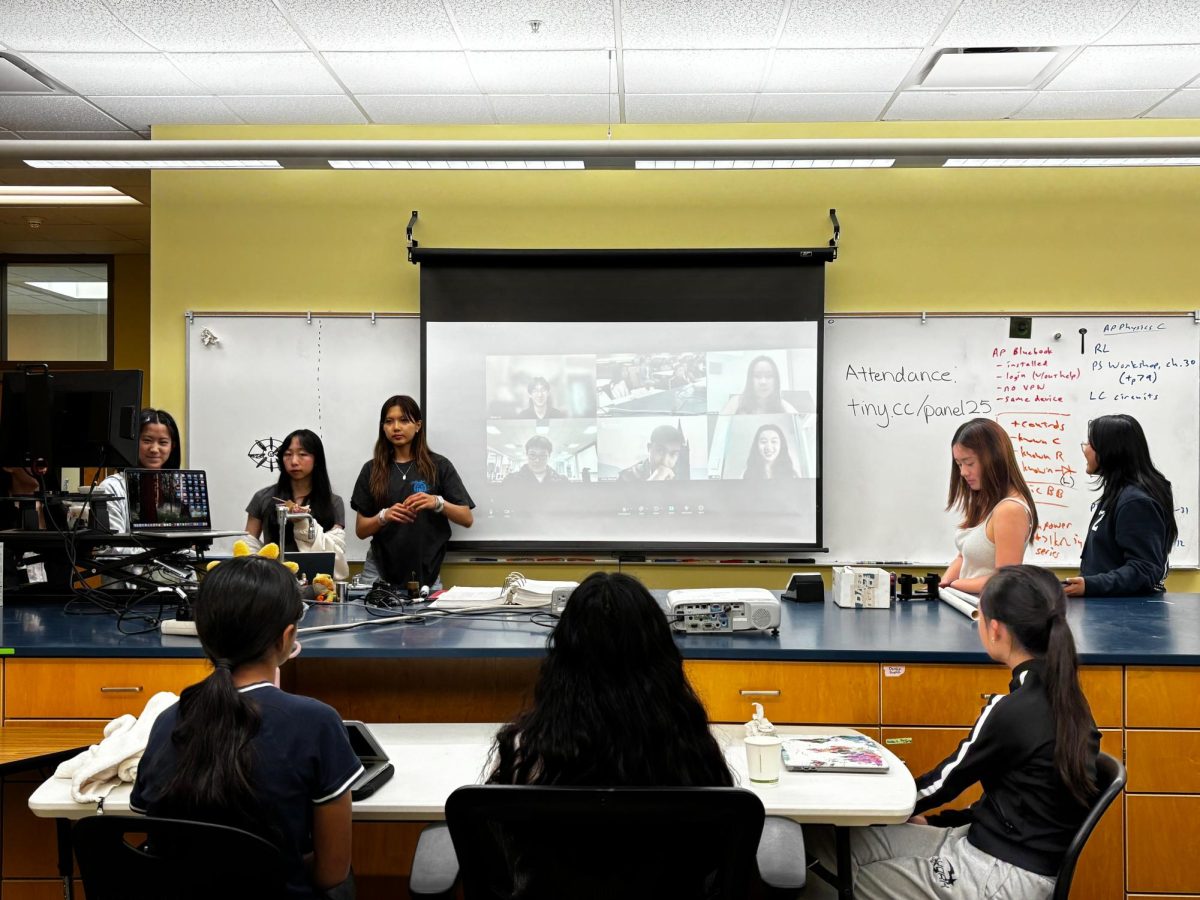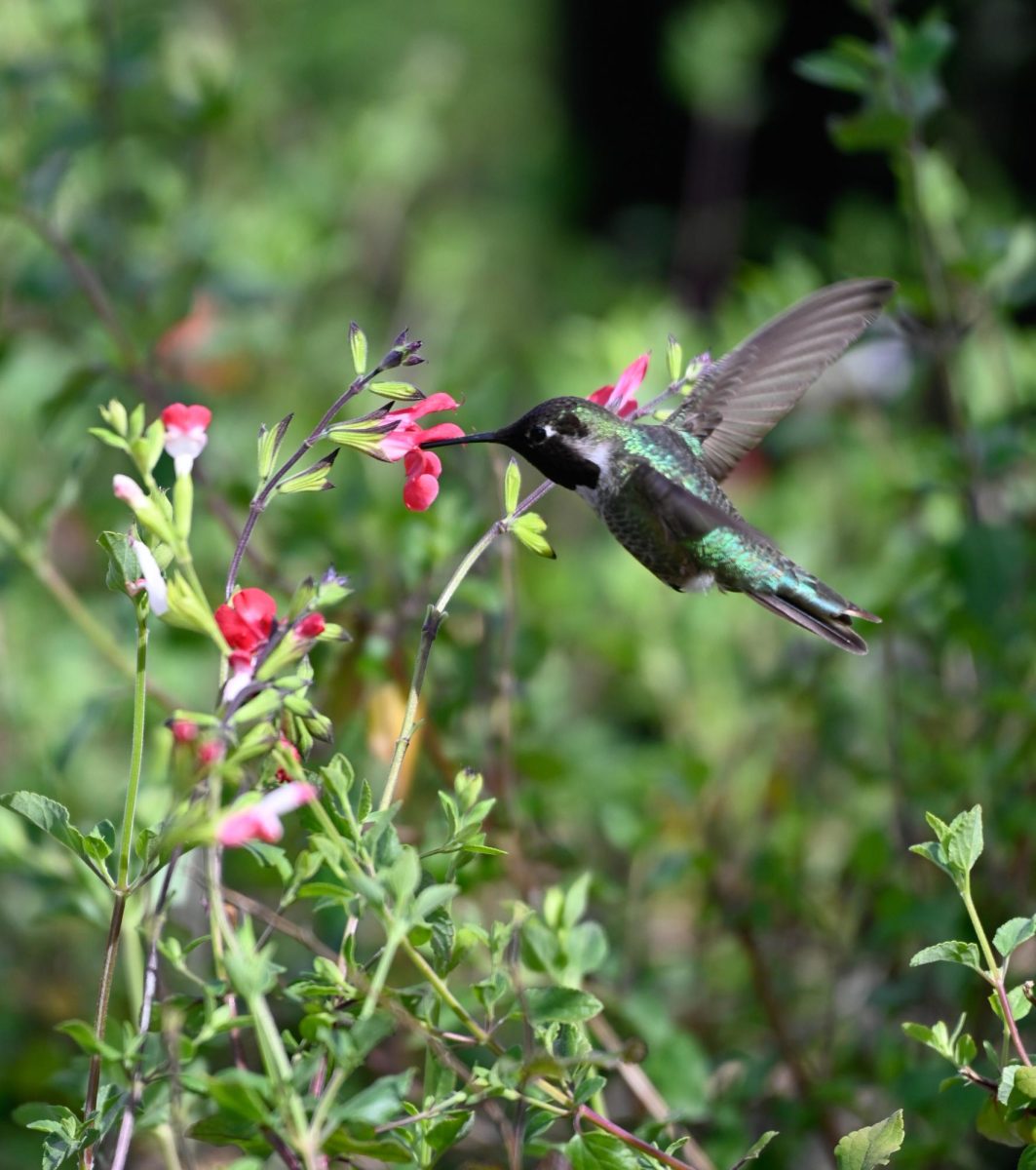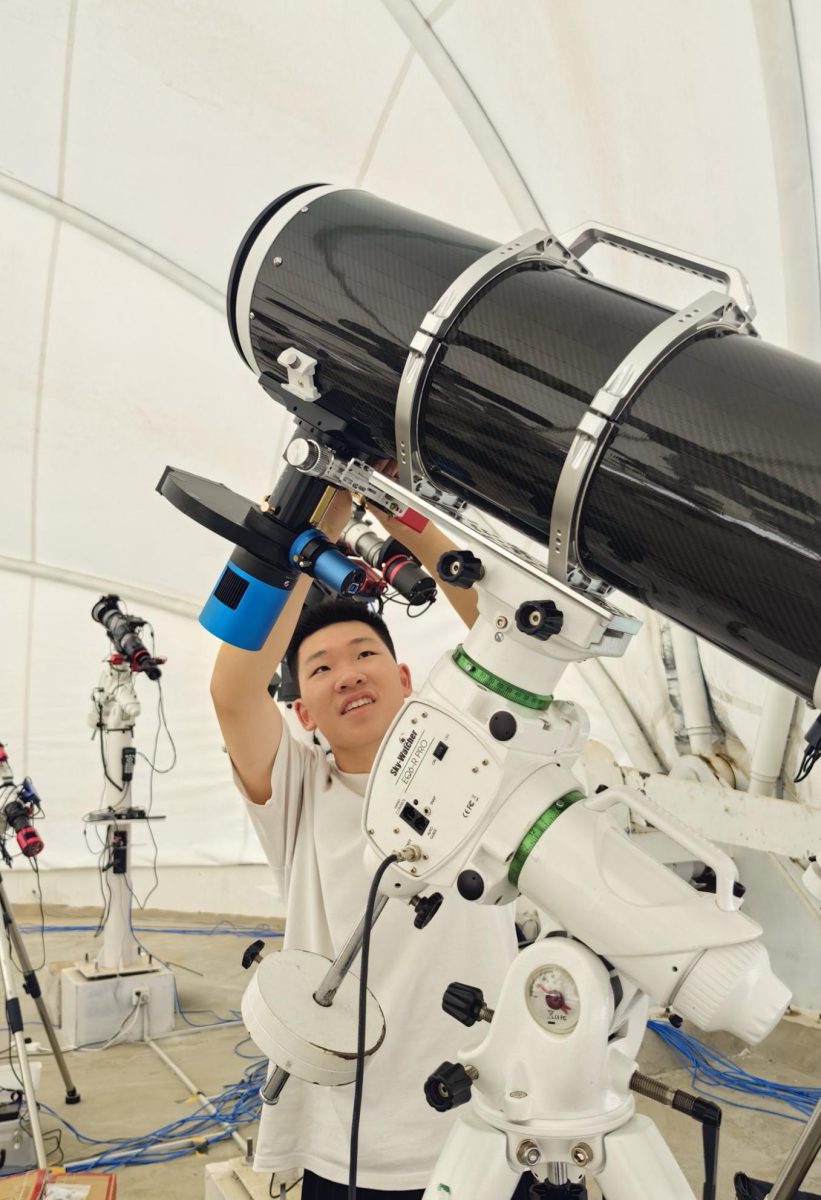Returning home to fresh greenery after a long day, whether thriving vegetation or potted succulents, can lighten anyone’s mood. The act of nurturing plants holds a special place in many households.
The simple act of tending a garden possesses various therapeutic effects like alleviating negative emotions, as the repetitive nature of watering and tending plants can help focus the mind. Interaction with indoor plants suppresses sympathetic nervous system activity and diastolic blood pressure, encouraging comfortable and soothed feelings.
For English teacher and avid gardener Nicholas Manjoine, the routine of caring for his garden serves as a form of self-therapy.
“There’s always a certain kind of kinship about digging in the dirt and watching things grow,” Manjoine said. “There’s nothing better for a nervous person than a process-oriented, presence-based task like taking care of plants. There’s always something to do, so you have to be strategic with what you want to tackle. It’s a process you can’t rush.”
Not only does gardening benefit mental health, but the process can also mitigate the effects of climate change. Most plants absorb carbon dioxide during photosynthesis. Trees and other perennial plants, including everyday plants such as Boston ferns, snake plants and succulents are particularly effective at sequestering carbon.
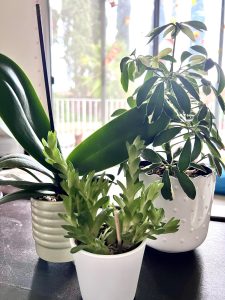
“I have a lot of vegetables and fruits, [like] peaches, figs and pumpkins, and I really enjoy taking care of living things,” plant-lover Angelina Antony (10) said. “I think it’s really good for the environment. Climate change is a huge issue and the best thing for me to do is to do my part in addressing it.”
Upper school English teacher Beth Wahl also grows a variety of indoor and native outdoor plants. From apricot trees to monkey flowers, plum trees to palms, her garden is a testament to her love for nature.
“I like the aesthetics of seeing things grow and having different colors,” Wahl said. “I set up all of my plants, even the bushes in the front part of that house, they’re different shades of yellow and green, so that no matter what the season is, there’s always color. Nothing ever just goes completely bare or brown and I love seeing that. I just like watching that cycle of nature.”
Wahl keeps most of her outdoor plants on an irrigation system but waters them every week as well. To keep her soil healthy, she periodically grows cover crops, plants that are grown to benefit future crops, like fava beans to replenish nitrogen in the soil.
“The more plants that you have, it actually helps people with attention and stress and general happiness,” Wahl said. “We’re meant to be in nature. It’s really artificial to spend your whole day inside. I really feel like I need to get outside periodically and part of it is just to notice the environment. I’ll walk around Harker and notice what’s blooming.”
For those who are less serious about gardening, growing plants can act as a relaxing pastime. Anna Lee (12) owns several potted plants and has grown them for two years. Her collection includes succulents and bushes, which each add a touch of nature to her room.
“They’re really low maintenance, so I just put them in small cubbies and water them when the dirt gets dry,” Anna said. “I started mainly just as a way to liven up my room and make it more green. I kind of see them as pets now, just like something to take care of in my pastime, so I’ve gotten really fond of them.”
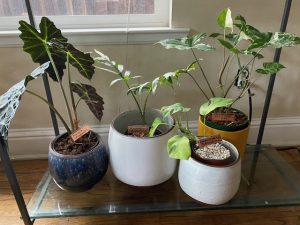
The variety of plant life cultivated within our community reflects the love and care for nature present in countless households. In caring for plants, we may cultivate organic life, allowing us to deepen our connection with the natural world in such an urban environment and understand the parallels between plants and people.
“[Plants are] just like people,” Manjoine said. “We see the surface of things, but there’s a lot more going on underneath the surface. It’s kind of funny that all of those things you can’t see, like the underground bits, the soil, and roots, are more important than anything else about a plant, kind of just like people. I think that it’s a metaphor for dealing with yourself and nurturing the best parts of yourself.”


















![“[Building nerf blasters] became this outlet of creativity for me that hasn't been matched by anything else. The process [of] making a build complete to your desire is such a painstakingly difficult process, but I've had to learn from [the skills needed from] soldering to proper painting. There's so many different options for everything, if you think about it, it exists. The best part is [that] if it doesn't exist, you can build it yourself," Ishaan Parate said.](https://harkeraquila.com/wp-content/uploads/2022/08/DSC_8149-900x604.jpg)




![“When I came into high school, I was ready to be a follower. But DECA was a game changer for me. It helped me overcome my fear of public speaking, and it's played such a major role in who I've become today. To be able to successfully lead a chapter of 150 students, an officer team and be one of the upperclassmen I once really admired is something I'm [really] proud of,” Anvitha Tummala ('21) said.](https://harkeraquila.com/wp-content/uploads/2021/07/Screen-Shot-2021-07-25-at-9.50.05-AM-900x594.png)







![“I think getting up in the morning and having a sense of purpose [is exciting]. I think without a certain amount of drive, life is kind of obsolete and mundane, and I think having that every single day is what makes each day unique and kind of makes life exciting,” Neymika Jain (12) said.](https://harkeraquila.com/wp-content/uploads/2017/06/Screen-Shot-2017-06-03-at-4.54.16-PM.png)








![“My slogan is ‘slow feet, don’t eat, and I’m hungry.’ You need to run fast to get where you are–you aren't going to get those championships if you aren't fast,” Angel Cervantes (12) said. “I want to do well in school on my tests and in track and win championships for my team. I live by that, [and] I can do that anywhere: in the classroom or on the field.”](https://harkeraquila.com/wp-content/uploads/2018/06/DSC5146-900x601.jpg)
![“[Volleyball has] taught me how to fall correctly, and another thing it taught is that you don’t have to be the best at something to be good at it. If you just hit the ball in a smart way, then it still scores points and you’re good at it. You could be a background player and still make a much bigger impact on the team than you would think,” Anya Gert (’20) said.](https://harkeraquila.com/wp-content/uploads/2020/06/AnnaGert_JinTuan_HoHPhotoEdited-600x900.jpeg)

![“I'm not nearly there yet, but [my confidence has] definitely been getting better since I was pretty shy and timid coming into Harker my freshman year. I know that there's a lot of people that are really confident in what they do, and I really admire them. Everyone's so driven and that has really pushed me to kind of try to find my own place in high school and be more confident,” Alyssa Huang (’20) said.](https://harkeraquila.com/wp-content/uploads/2020/06/AlyssaHuang_EmilyChen_HoHPhoto-900x749.jpeg)










